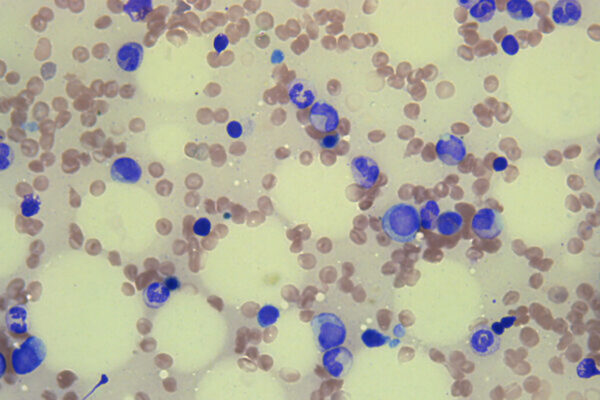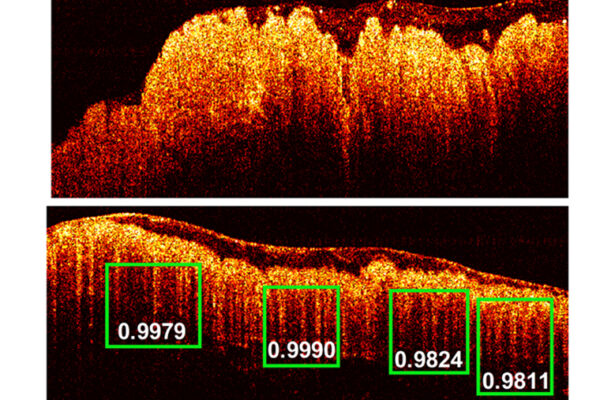Fight against endometrial cancer boosted with new molecular road map
A new study offers a road map to understanding the molecular underpinnings of endometrial cancer, which could lead to new therapies. The national research team was co-led by investigators at the School of Medicine.
Mutations in donors’ stem cells may cause problems for cancer patients
A new study from the School of Medicine suggests that bone marrow — or blood stem cells — from healthy donors can harbor extremely rare mutations that can cause health problems for the cancer patients who receive them. Such stem cell transplants are important for treating blood cancers, including acute myeloid leukemia.
Investigational drugs block bone loss in mice receiving chemotherapy
Exposure to chemotherapy and radiation during cancer treatment leads to bone loss and increases the risk of osteoporosis and fractures. A new School of Medicine study identifies the trigger for this bone loss and suggests ways to prevent it.
In transfusions for children, fresh and older blood are equally effective
An international study led by the School of Medicine and CHU Sainte-Justine hospital in Montreal has found no benefit in using fresh red blood cells that have been stored for up to seven days in blood transfusions for critically ill children, compared with using older red blood cells stored for nearly four weeks.
Machine learning, imaging technique may boost colon cancer diagnosis
Researchers at the McKelvey School of Engineering have devised a new imaging technique based on a technology that has been used for two decades in ophthalmology that can provide accurate, real-time, computer-aided diagnosis of colorectal cancer.
Surgeon weighs in on textured breast implants
Textured breast implants have been linked to a rare and sometimes fatal cancer. Terence M. Myckatyn, MD, who wrote about the issue in a commentary published Oct. 23 in JAMA Surgery, answers questions about the implants.
Clues to improve cancer immunotherapy revealed
School of Medicine researchers have demonstrated in a new study that both killer and helper T cells are needed for tumors to be rejected during cancer immunotherapy.
$7.6 million funds center to fight cancer disparities in Missouri, Illinois
A grant from the National Cancer Institute of the National Institutes of Health (NIH) will fund the Implementation Science Center for Cancer Control at Washington University. The center’s aim will be to reduce cancer disparities in Missouri and central and southern Illinois.
$3.7 million supports crowdsourced database of cancer genomics
Scientists at the School of Medicine have received a $3.7 million grant from the National Institutes of Health (NIH) to support an open-source database aimed at boosting personalized approaches to cancer treatment.
$15 million supports quest for personalized leukemia therapies
Investigators at Siteman Cancer Center at Barnes-Jewish Hospital and Washington University School of Medicine in St. Louis have been awarded a $15 million grant to better understand the genetic changes that drive acute myeloid leukemia (AML), a deadly blood cancer, and predict patients’ responses to therapy. The findings also may enable investigators to develop more effective therapies tailored to patients, based on the genetic characteristics of their cancer cells.
Older Stories









